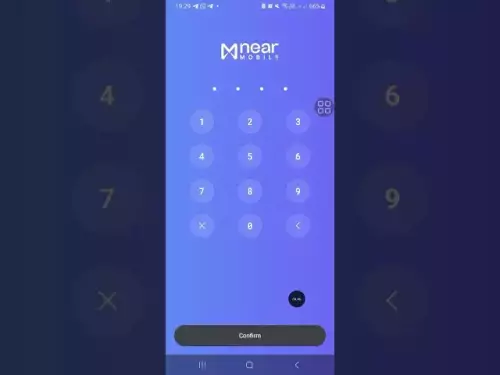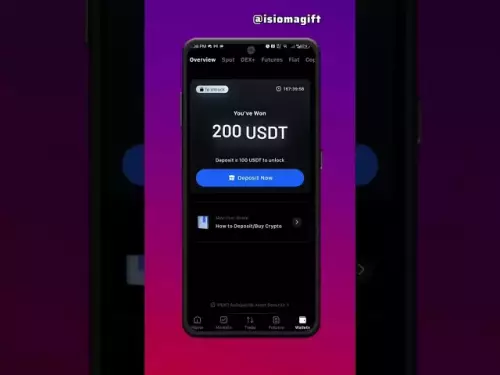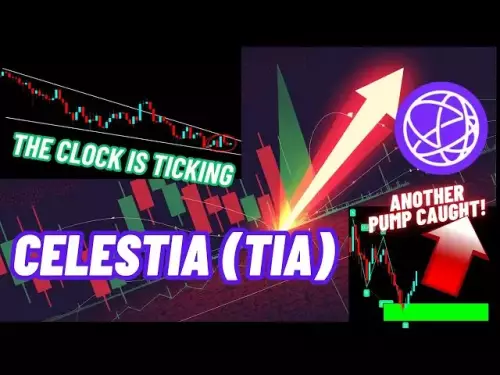-
 Bitcoin
Bitcoin $109800
0.96% -
 Ethereum
Ethereum $4462
-0.28% -
 Tether USDt
Tether USDt $1.000
0.01% -
 XRP
XRP $2.821
-0.71% -
 BNB
BNB $861.7
0.16% -
 Solana
Solana $202.1
-1.48% -
 USDC
USDC $1.000
0.03% -
 Dogecoin
Dogecoin $0.2184
0.01% -
 TRON
TRON $0.3411
-0.35% -
 Cardano
Cardano $0.8371
0.97% -
 Chainlink
Chainlink $23.72
-0.38% -
 Hyperliquid
Hyperliquid $45.31
1.40% -
 Ethena USDe
Ethena USDe $1.001
0.03% -
 Sui
Sui $3.324
-0.19% -
 Stellar
Stellar $0.3621
0.40% -
 Bitcoin Cash
Bitcoin Cash $547.2
-0.56% -
 Avalanche
Avalanche $24.23
0.46% -
 Cronos
Cronos $0.2828
-3.05% -
 Hedera
Hedera $0.2226
-1.80% -
 UNUS SED LEO
UNUS SED LEO $9.611
0.32% -
 Litecoin
Litecoin $110.7
-0.96% -
 Toncoin
Toncoin $3.157
0.51% -
 Shiba Inu
Shiba Inu $0.00001250
0.45% -
 Polkadot
Polkadot $3.851
0.19% -
 Uniswap
Uniswap $9.753
-1.24% -
 Dai
Dai $0.9999
0.00% -
 Bitget Token
Bitget Token $4.570
0.11% -
 Monero
Monero $268.2
2.03% -
 Aave
Aave $316.7
-1.64% -
 Ethena
Ethena $0.6473
-4.43%
How to use Gemini to buy and sell NFTs?
Get started with Gemini’s NFT marketplace by creating a secure account, funding your wallet, and exploring verified digital collectibles today.
Sep 01, 2025 at 03:36 pm
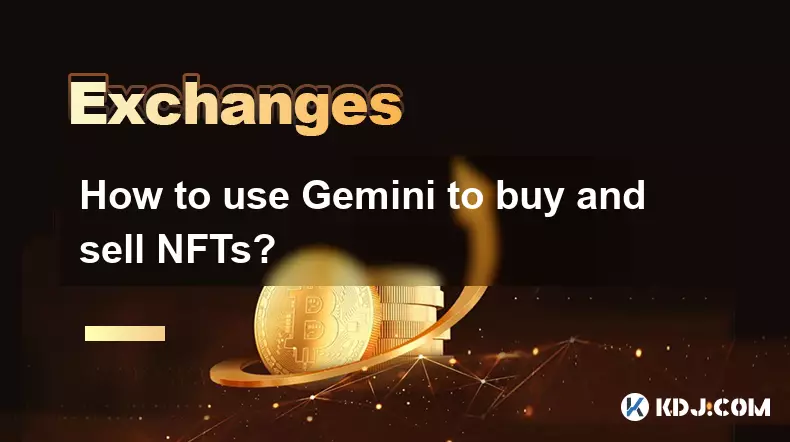
Getting Started with Gemini for NFT Transactions
1. To begin using Gemini for NFT trading, users must first create an account on the Gemini platform. This involves providing personal information, verifying identity, and enabling two-factor authentication for enhanced security. Once the account is verified, users can proceed to fund their wallet using either fiat currency or cryptocurrency.
2. After funding, navigate to the NFT marketplace section within the Gemini application. Gemini offers a curated selection of NFTs from verified creators and collections. Users can browse through categories such as digital art, collectibles, and virtual real estate. Each NFT listing includes metadata, creator details, and ownership history to ensure transparency.
3. Before making a purchase, it’s essential to review the gas fees and transaction costs associated with the Ethereum blockchain, as most NFTs on Gemini are built on this network. Users should also confirm that their wallet is compatible with ERC-721 or ERC-1155 tokens, which are standard for NFTs.
4. When ready to buy, click on the desired NFT and select “Buy Now” or place a bid if the listing supports auctions. Transactions are executed using the wallet balance, and once confirmed on the blockchain, the NFT is transferred to the user’s Gemini wallet. Ownership is recorded immutably on the blockchain, ensuring authenticity.
5. Selling NFTs follows a similar process. Users can list their owned NFTs by setting a fixed price or creating an auction. The listing becomes visible to the marketplace audience, and potential buyers can make offers. Upon acceptance of an offer, the NFT is transferred, and funds are deposited into the seller’s Gemini account after deducting platform fees.
Security Measures When Trading NFTs on Gemini
1. Gemini employs institutional-grade security protocols to protect user assets. All NFTs and cryptocurrency holdings are stored using a combination of cold storage and multi-signature wallets, minimizing exposure to online threats. This infrastructure is designed to prevent unauthorized access and reduce the risk of hacks.
2. Two-factor authentication (2FA) is mandatory for all account actions, including logins and transactions. Users are encouraged to use authenticator apps rather than SMS-based 2FA for stronger protection against SIM-swapping attacks.
3. Gemini conducts regular smart contract audits for NFT collections listed on its platform. These audits help identify vulnerabilities in the code that could be exploited by malicious actors. Only NFTs from audited and verified contracts are allowed for trading.
4. Users should remain cautious of phishing attempts. Gemini will never request private keys or recovery phrases. Any communication asking for such information should be reported immediately. Always access the platform through the official website or app.
5. In the event of suspicious activity, Gemini’s fraud detection system automatically flags transactions and may temporarily restrict account access until verification is complete. This proactive monitoring helps maintain a secure trading environment.
Fees and Costs Associated with NFT Trading on Gemini
1. Gemini charges a transaction fee for both buying and selling NFTs, typically ranging from 1% to 3% of the sale price. This fee supports platform maintenance, customer support, and marketplace development. It is deducted automatically from the transaction amount.
2. In addition to platform fees, users must account for blockchain network fees, commonly known as gas fees. These fees fluctuate based on Ethereum network congestion and are paid to miners for processing the transaction. High demand periods can lead to increased costs.
3. Listing an NFT for sale on Gemini is free, but once a sale is completed, the seller is charged the applicable transaction fee. There are no hidden charges or subscription costs for accessing the NFT marketplace.
4. Withdrawals of funds from Gemini to external wallets may incur a small network fee. This fee varies depending on the cryptocurrency and current network conditions. Users can choose the withdrawal speed, with faster options costing more.
5. For high-volume traders, Gemini offers a tiered fee structure based on trading activity. Users who meet certain volume thresholds may qualify for reduced fees, making the platform more cost-effective for active participants in the NFT space.
Frequently Asked Questions
Can I transfer NFTs purchased on Gemini to another wallet?Yes, users can transfer their NFTs to external wallets that support ERC-721 or ERC-1155 tokens. This is done through the wallet section of the Gemini app by initiating a transfer and providing the recipient’s wallet address. Ensure the address is correct, as blockchain transactions are irreversible.
Are all NFTs on Gemini built on Ethereum?Currently, the majority of NFTs available on Gemini are based on the Ethereum blockchain. However, Gemini has expressed interest in supporting additional blockchains in the future, which could expand the range of compatible NFTs.
What happens if an NFT I bought turns out to be fraudulent?Gemini verifies the authenticity of NFTs listed on its marketplace through smart contract audits and creator verification. If an NFT is found to be fraudulent, users can report it to customer support. Gemini may investigate and take action, including delisting the item and assisting with dispute resolution.
Does Gemini provide price history for NFTs?Gemini displays transaction history for each NFT, including past sale prices and ownership transfers. This data helps users assess value trends and make informed decisions when buying or bidding on digital assets.
Disclaimer:info@kdj.com
The information provided is not trading advice. kdj.com does not assume any responsibility for any investments made based on the information provided in this article. Cryptocurrencies are highly volatile and it is highly recommended that you invest with caution after thorough research!
If you believe that the content used on this website infringes your copyright, please contact us immediately (info@kdj.com) and we will delete it promptly.
- Memecoins September 2025 Watchlist: What's Hot Now?
- 2025-08-31 23:25:15
- Eric Trump Predicts Bitcoin to $1 Million: Hype or Reality?
- 2025-08-31 23:25:15
- BlockDAG: Redefining Scalability and ROI Potential in 2025
- 2025-08-31 23:05:16
- Ozak AI, Altcoins, and 20x Potential: Navigating the Crypto Landscape
- 2025-09-01 00:05:12
- Bonk Price, Solana Meme Coin, and the Rise of Layer Brett: A New Era?
- 2025-08-31 21:25:12
- ETH Transactions Soar, BTC Whale Shifts Gears: Decoding August's Crypto Charts
- 2025-08-31 21:05:16
Related knowledge
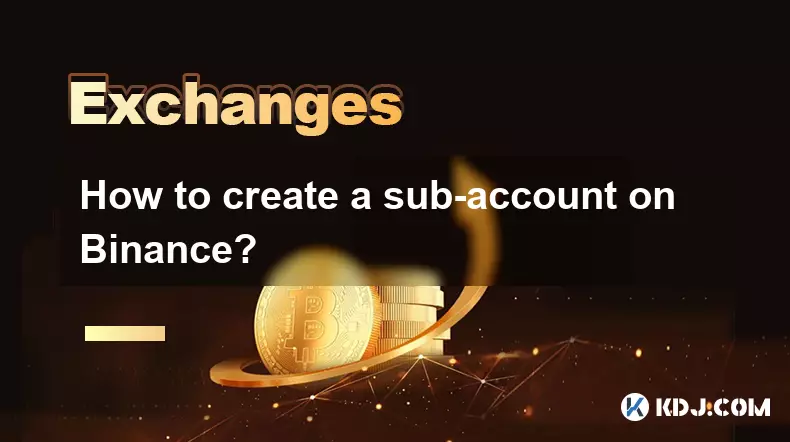
How to create a sub-account on Binance?
Sep 01,2025 at 12:36am
Accessing the Binance Sub-Account Feature1. Log in to your Binance account using your registered email and password. Ensure that two-factor authentica...
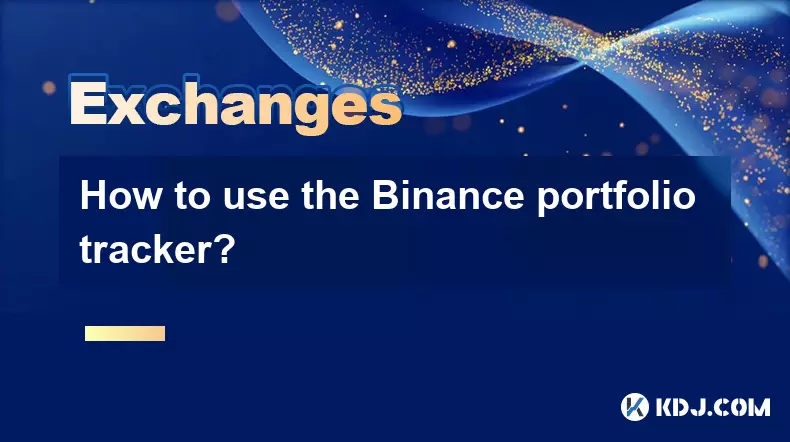
How to use the Binance portfolio tracker?
Sep 01,2025 at 01:00pm
Understanding the Binance Portfolio Tracker1. The Binance portfolio tracker is a powerful tool designed to help users monitor their cryptocurrency inv...
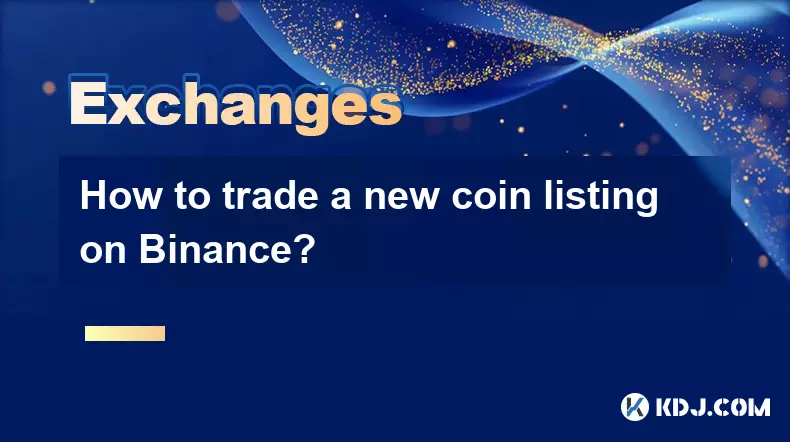
How to trade a new coin listing on Binance?
Aug 29,2025 at 11:14am
Understanding the Pre-Listing Phase1. Research the project thoroughly before any listing announcement. Whitepapers, team backgrounds, and community se...
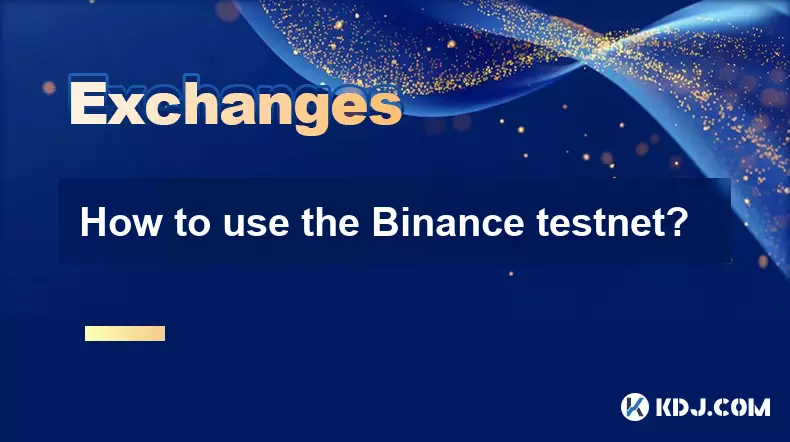
How to use the Binance testnet?
Aug 31,2025 at 02:19am
Understanding the Binance Testnet Environment1. The Binance testnet is a simulated version of the Binance Smart Chain (BSC) that allows developers and...
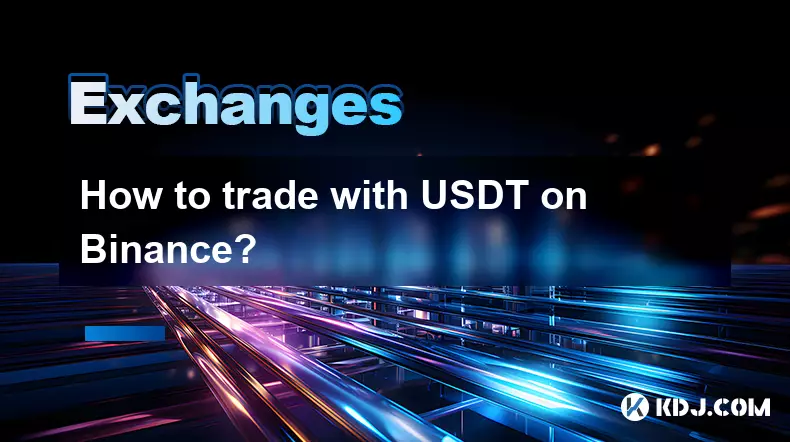
How to trade with USDT on Binance?
Aug 30,2025 at 02:19am
Getting Started with USDT Trading on Binance1. Create and verify your Binance account. Visit the official Binance website and complete the registratio...
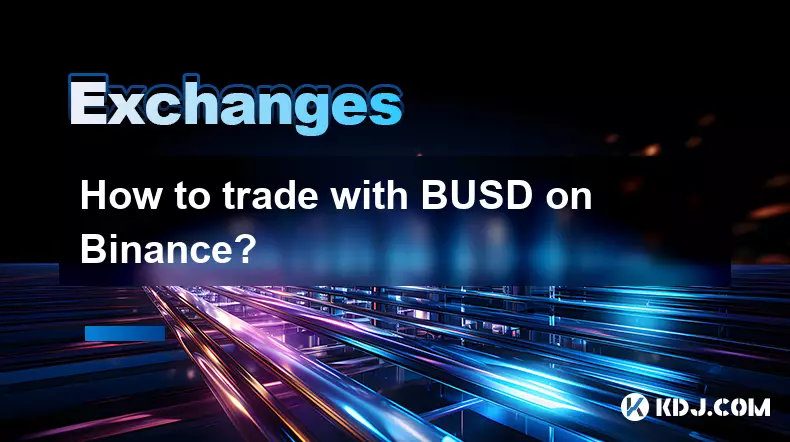
How to trade with BUSD on Binance?
Aug 30,2025 at 07:42am
Understanding BUSD and Its Role in Binance Trading1. BUSD, or Binance USD, is a stablecoin pegged to the value of the U.S. dollar, meaning 1 BUSD is a...

How to create a sub-account on Binance?
Sep 01,2025 at 12:36am
Accessing the Binance Sub-Account Feature1. Log in to your Binance account using your registered email and password. Ensure that two-factor authentica...

How to use the Binance portfolio tracker?
Sep 01,2025 at 01:00pm
Understanding the Binance Portfolio Tracker1. The Binance portfolio tracker is a powerful tool designed to help users monitor their cryptocurrency inv...

How to trade a new coin listing on Binance?
Aug 29,2025 at 11:14am
Understanding the Pre-Listing Phase1. Research the project thoroughly before any listing announcement. Whitepapers, team backgrounds, and community se...

How to use the Binance testnet?
Aug 31,2025 at 02:19am
Understanding the Binance Testnet Environment1. The Binance testnet is a simulated version of the Binance Smart Chain (BSC) that allows developers and...

How to trade with USDT on Binance?
Aug 30,2025 at 02:19am
Getting Started with USDT Trading on Binance1. Create and verify your Binance account. Visit the official Binance website and complete the registratio...

How to trade with BUSD on Binance?
Aug 30,2025 at 07:42am
Understanding BUSD and Its Role in Binance Trading1. BUSD, or Binance USD, is a stablecoin pegged to the value of the U.S. dollar, meaning 1 BUSD is a...
See all articles





















